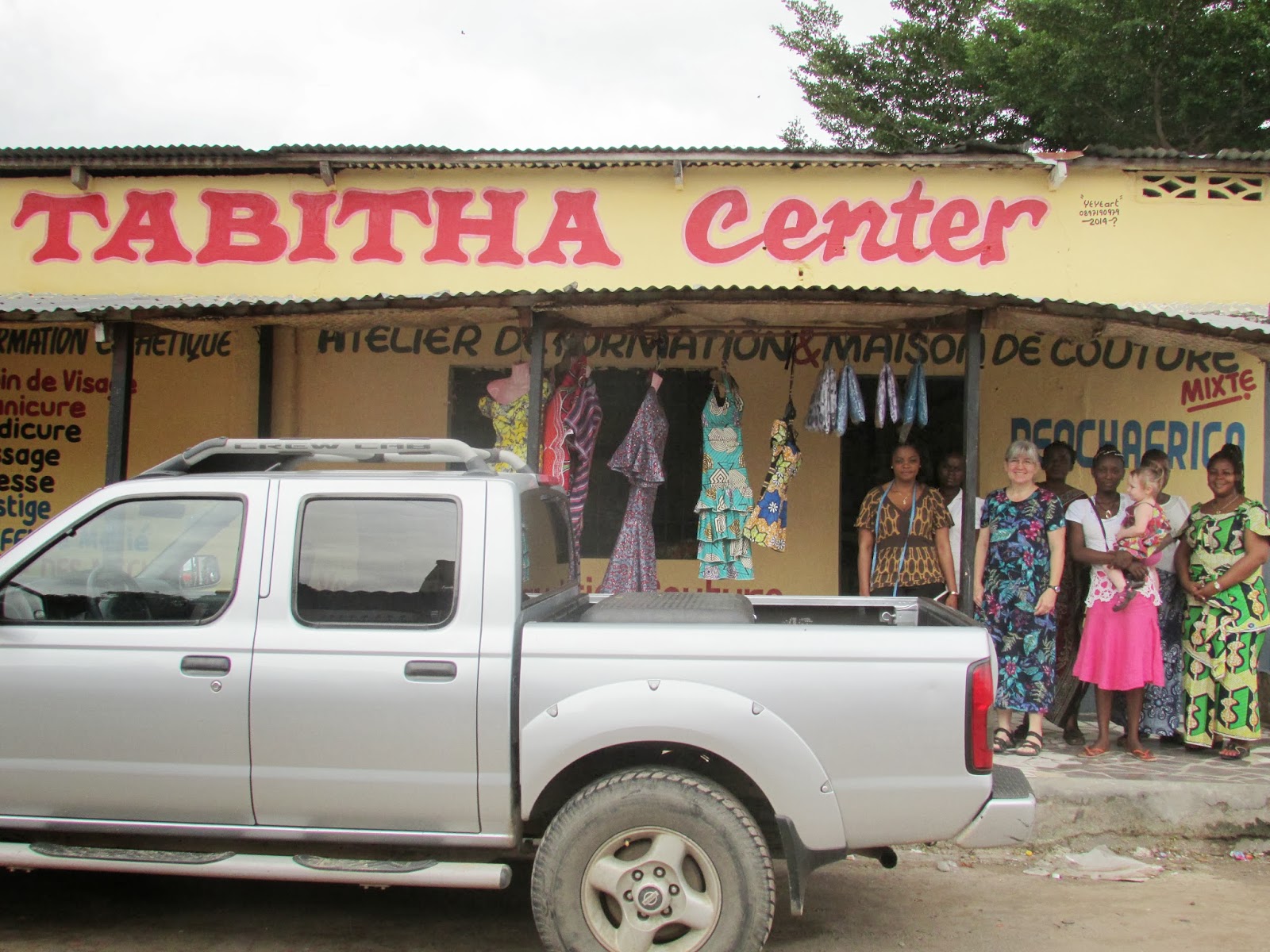 |
| Claudine Selenga teaching the women in the vocational center. |
 |
| Figuring out the pattern to a favorite skirt. |

Kinshasa is a city with approximately 12 million people. Many girls come to Kinshasa with hopes of completing school and then getting a job to support themselves and their families. Life in Kinshasa is very expensive and many families cannot afford to finance their children all the way through school. Often the girls drop out and resort to prostitution. Many children in families in Kinshasa are thrown out on the streets either after being accused of sorcery (witchcraft) or a step parent refuses to accept them into the new marriage to a biological parent. One-third of the children on the streets are girls and many of them resort to prostitution.
Claudine has a desire to reach out to these girls and help them with training in tailoring, cosmetology or cooking in order to find better options for living. The first Tabitha Center was opened in the neighborhood of Bendal next to a bar. The building had been a brothel until the ministry took it over to make it into a vocational school.
When I visited several weeks ago, I noticed their daily schedule on the door. Each day begins with Bible and then studying "Choose Life". Then the vocational training begins.
When I arrived it was already close to 10 a.m. and only one girl showed up. When I enquired as to why, I was told that many of the girls already have their own children and they have to wait for someone to babysit for them. Others need transportation to get across town. I asked if they would begin at the beginning of the schedule when the girls arrived. The answer was, "Of course!" So the girls will get Bible teaching and life training even with a relaxed schedule.
 There is a great need for these vocational schools to be located in neighborhoods throughout Kinshasa so girls do not have to travel by taxi to get to school. Claudine's vision is to begin 15 vocational training centers by April 2014. I just had supper with the mission director, Jim Snyder, on Thursday last week. They had just dedicated another center. In five years they want to see 1,000 centers opened in Kinshasa being directed by women in the church who can teach what they know already.
There is a great need for these vocational schools to be located in neighborhoods throughout Kinshasa so girls do not have to travel by taxi to get to school. Claudine's vision is to begin 15 vocational training centers by April 2014. I just had supper with the mission director, Jim Snyder, on Thursday last week. They had just dedicated another center. In five years they want to see 1,000 centers opened in Kinshasa being directed by women in the church who can teach what they know already. |
| Personally, I like this dress and would like one made for me. |
Reach Global, the American extension of the mission is hoping to team with the Tabitha Centers and send out teams to encourage the women serving in these centers. They also are financially assisting to start the programs.
If you are interested in assisting with this ministry to can receive more information by contacting
 |
| Ready to get to work! |
901 E 78th St., Minneapolis, MN 55420
You can follow this link to give a donation. Then follow the "give" link. Then you can specify for the Tabitha Center Project #2200-5414.
Claudine was waiting to start their day with some other ladies when I arrived. It looked like they were in between classes. Two of the ladies that came had just finished up the classes with Claudine at the Bendal Center and were getting ready to do an internship in other neighborhoods.
It was nice to meet Claudine face to face finally. We are still getting to know each other and hope to spend some time with some English lessons in the near future.
Just recently the Bendal Tabitha Center started teaching the women how to do hair. This will give the women another vocation to earn money for their families.
Yes, we drove my truck to the center. I still appreciate those who gave so that I could have this truck to get around in Kinshasa. I also greatly appreciate my husband who keeps it repaired and in shape.
 |
| Adah and I got to pose with the ladies. |
For a most recent update on the Tabitha Center click on this link: Installation #9 and #10.






